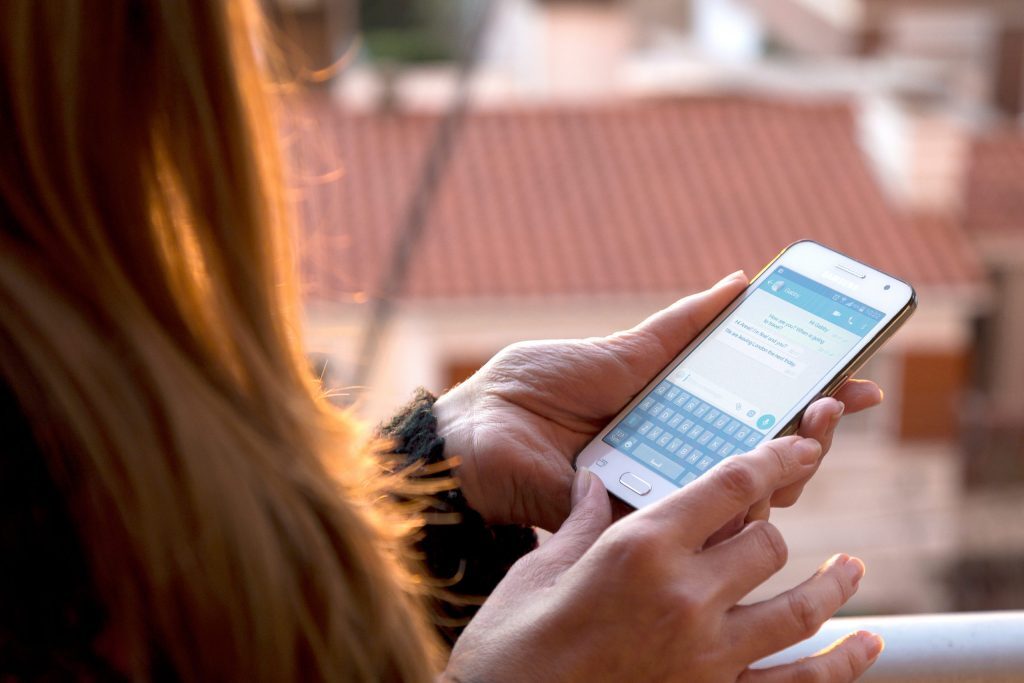Your phone chimes, it’s a message from your partner. You reply instantly because that’s what you always do.
Then you decide to add another message: “By the way, I love you ☺”
You see the “read” status appear under the message, and you wait for her reply. An hour later you are still waiting, still checking.
Has this ever happened to you?
For most of us, there is an unwritten social contract that underlies our online messaging interactions. The clearest part of that contract is that certain types of messages demand a timely response.
In our world of instant communications, it seems we have come to expect that the general immediacy and access to information afforded to us by our technology, should be reflected in our online social communication, just as it would be when face-to-face.
But norms that exist in the real world don’t necessarily transfer easily to the digital realm. Is it time we developed a new social contract for online communications?
Stoking the fires of social anxiety
When the social contract is broken or even bent a little, it can introduce a hierarchy of discomfort into the communication process, often including anxiety and introspective rumination over the reasons for the non-reply.
These types of emotions may be felt much more powerfully when we believe the person on the other end has actually read our message but has chosen to ignore us.
In these cases, our discomfort may rise with the passing of time. The rising anxiety may escalate to the point where we bombard the non-replier with yet more messages to try to elicit a response.
Of course, responses such as these can vary from person to person, and culture to culture. It has been suggested some people who are highly emotionally reactive and use text messaging excessively may actually feel rejected, isolated and suffer deep anxiety when replies to their messages are not immediate.
Read receipts makes things worse
It’s worth considering that the technology platform we use to conduct our messaging activities, may contribute to our expectations of an immediate reply.
Virtually every online messaging platform has a way of informing us when our message has been delivered to, and read by, the recipient.
WhatsApp has two blue ticks, one for successful delivery and one for when the message has been read. Facebook messenger shows the recipient’s profile picture beside the message, and so on.
If we know the person well, we may even know they have message receipt notifications set to appear on their device. These notifications do not specifically trigger the read-receipt for our message, but we know it’s likely the recipient has at least seen our message.
Combine all this with the ability to see when someone was last active online, and you have the perfect reply-status nightmare, if you are someone who cares.
The fear of being ghosted
It’s easy to understand how read-receipt anxiety has evolved. Just imagine the offline equivalent – you say something to someone, you know they have heard you, but they deliberately ignore you.
When face to face, we would almost always make further enquiries to get our response and we’d be confused, or angry if it was not forthcoming.
It’s really not very surprising, given the very high volume of online messaging we now engage in, that people expect the same communication etiquette when using messaging platforms.
When non-reply behaviour is taken to an extreme, it may be analogous to a phenomenon known as ghosting. Ghosting involves indulging in behaviours such as not returning text messages, emails, phone calls or any related electronic communications.
It can occur within any type of close relationship but is more often associated with intimate ones. People often use ghosting as way of breaking off a relationship without any apparent justification.
Most of us would agree that a non-reply to an online message of love to an intimate other elicits a very strong emotional response, one that has very little to do with the length of the relationship in question.
Evolving norms for new technologies
In any intimate relationship, a non-reply may make us feel humiliated, rejected isolated and embarrassed. Over time our anxiety will increase until we hear that return chime – hopefully they love us too, along with an apology for the delay, and all emotions can return quickly to normal levels.
Some people may actually use non-reply behaviour to manage their relationship dynamics, and torture their friends and loved ones. Of course no one reading this would ever have engaged in such Machiavellian behaviour!
Perhaps we need a new type of online communication social contract, and let’s set these expectations at the beginning of a relationship, or any friendship.
For example, on Tinder, profiles should perhaps have a box to tick to specify whether immediate replies are optional. Thanks to read-receipts and their associated emotional impact, relationship communication really has never been more complex and perplexing.
- is a Lecturer, The University of Queensland
- This article first appeared on The Conversation




